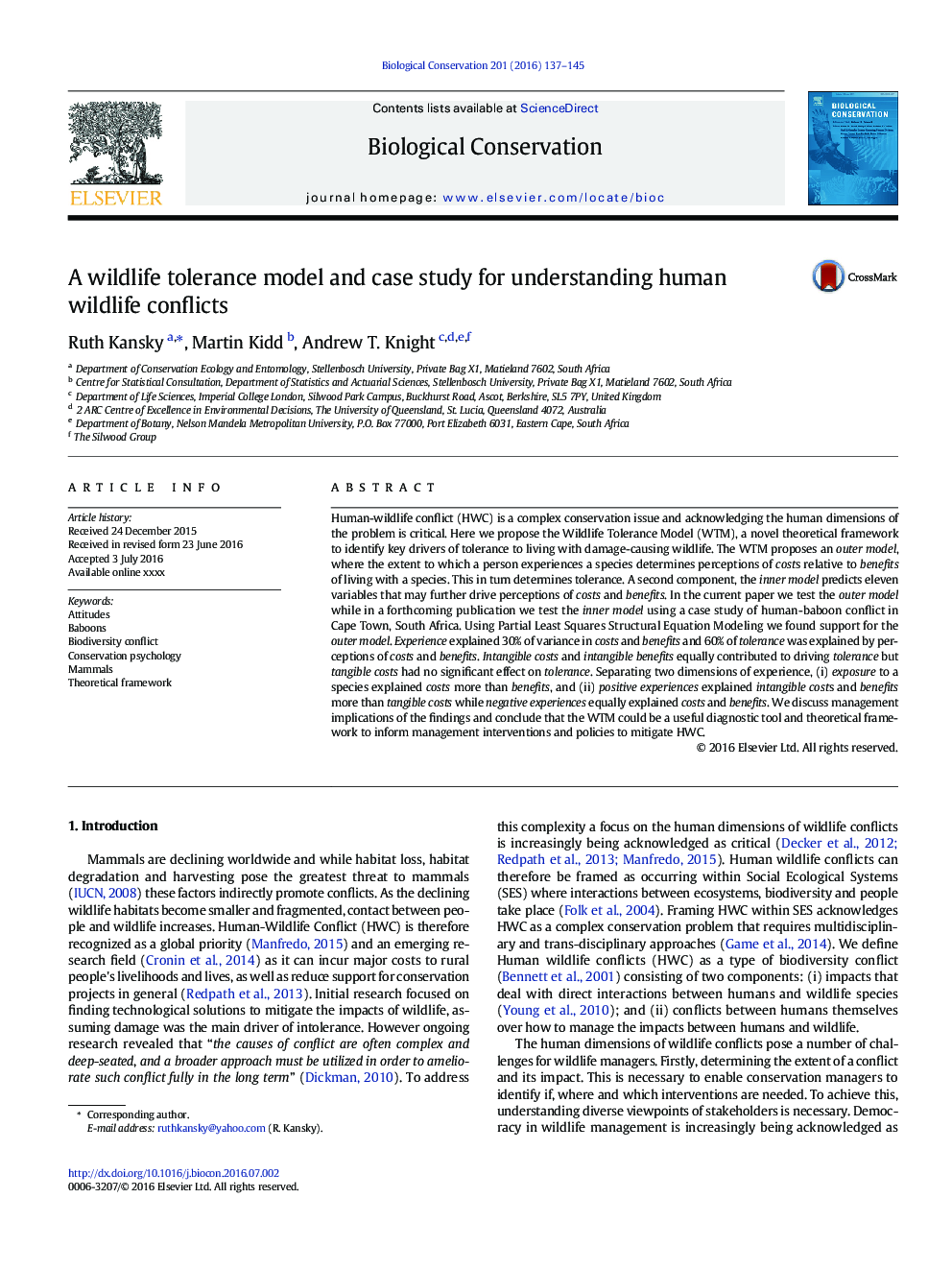| کد مقاله | کد نشریه | سال انتشار | مقاله انگلیسی | نسخه تمام متن |
|---|---|---|---|---|
| 6298184 | 1617900 | 2016 | 9 صفحه PDF | دانلود رایگان |
عنوان انگلیسی مقاله ISI
A wildlife tolerance model and case study for understanding human wildlife conflicts
ترجمه فارسی عنوان
مدل تحمل حیات وحش و مطالعه موردی برای درک منافع حیات وحش انسان
دانلود مقاله + سفارش ترجمه
دانلود مقاله ISI انگلیسی
رایگان برای ایرانیان
کلمات کلیدی
نگرش های، بابون درگیری تنوع زیستی، روانشناسی حفاظت، پستانداران، چارچوب نظری،
موضوعات مرتبط
علوم زیستی و بیوفناوری
علوم کشاورزی و بیولوژیک
بوم شناسی، تکامل، رفتار و سامانه شناسی
چکیده انگلیسی
Human-wildlife conflict (HWC) is a complex conservation issue and acknowledging the human dimensions of the problem is critical. Here we propose the Wildlife Tolerance Model (WTM), a novel theoretical framework to identify key drivers of tolerance to living with damage-causing wildlife. The WTM proposes an outer model, where the extent to which a person experiences a species determines perceptions of costs relative to benefits of living with a species. This in turn determines tolerance. A second component, the inner model predicts eleven variables that may further drive perceptions of costs and benefits. In the current paper we test the outer model while in a forthcoming publication we test the inner model using a case study of human-baboon conflict in Cape Town, South Africa. Using Partial Least Squares Structural Equation Modeling we found support for the outer model. Experience explained 30% of variance in costs and benefits and 60% of tolerance was explained by perceptions of costs and benefits. Intangible costs and intangible benefits equally contributed to driving tolerance but tangible costs had no significant effect on tolerance. Separating two dimensions of experience, (i) exposure to a species explained costs more than benefits, and (ii) positive experiences explained intangible costs and benefits more than tangible costs while negative experiences equally explained costs and benefits. We discuss management implications of the findings and conclude that the WTM could be a useful diagnostic tool and theoretical framework to inform management interventions and policies to mitigate HWC.
ناشر
Database: Elsevier - ScienceDirect (ساینس دایرکت)
Journal: Biological Conservation - Volume 201, September 2016, Pages 137-145
Journal: Biological Conservation - Volume 201, September 2016, Pages 137-145
نویسندگان
Ruth Kansky, Martin Kidd, Andrew T. Knight,
